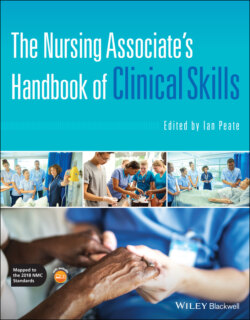Читать книгу The Nursing Associate's Handbook of Clinical Skills - Группа авторов - Страница 145
Touch Point
ОглавлениеCarper’s (1978) four patterns of nursing knowledge:
Personal knowing
Refers to the knowledge of ourselves, what we have seen and experienced. This type of knowledge comes through the process of observation, reflection and self‐actualisation. As we know ourselves, we are able to establish authentic, therapeutic relationships.
Empirical knowing
Empirical knowledge is gained from research and objective facts. This knowledge is systematically organised into general laws and theories. This way of knowing is often referred to as the science of nursing.
Ethical knowing
This way of knowing helps develop our own moral code and our sense of knowing what is right and wrong. Nursing associates’ personal ethics are based on their obligation to protect and respect human life.
Aesthetic knowing
Aesthetic knowing makes nursing an art. All the other ways of knowing are considered and through it aesthetic knowing.
Source: Based on Carper (1978)
Interestingly, Munhall (1993, cited in Stevens 2018) identified ‘unknowing’ as a further component of knowing, suggesting this is an awareness that the nurse does not and cannot know or understand of the patient when they initially meet. The skill of recognising this unknowing ensures that the nursing associate remains alert to the patients’ perception of need. This echoes Mayer & Salovey’s (1997) theoretical framework of emotional intelligence, where on initial meeting with the patient, the nurse perceives the situation by tuning in to his/her own self and emotional awareness and that of the patient in order to gauge the need of the situation. Part of this awareness is sometimes referred to as intuitive or tacit knowledge, just knowing and understanding common thoughts. Such knowledge adds to the gathering of information in the development of the therapeutic nurse–patient relationship.
